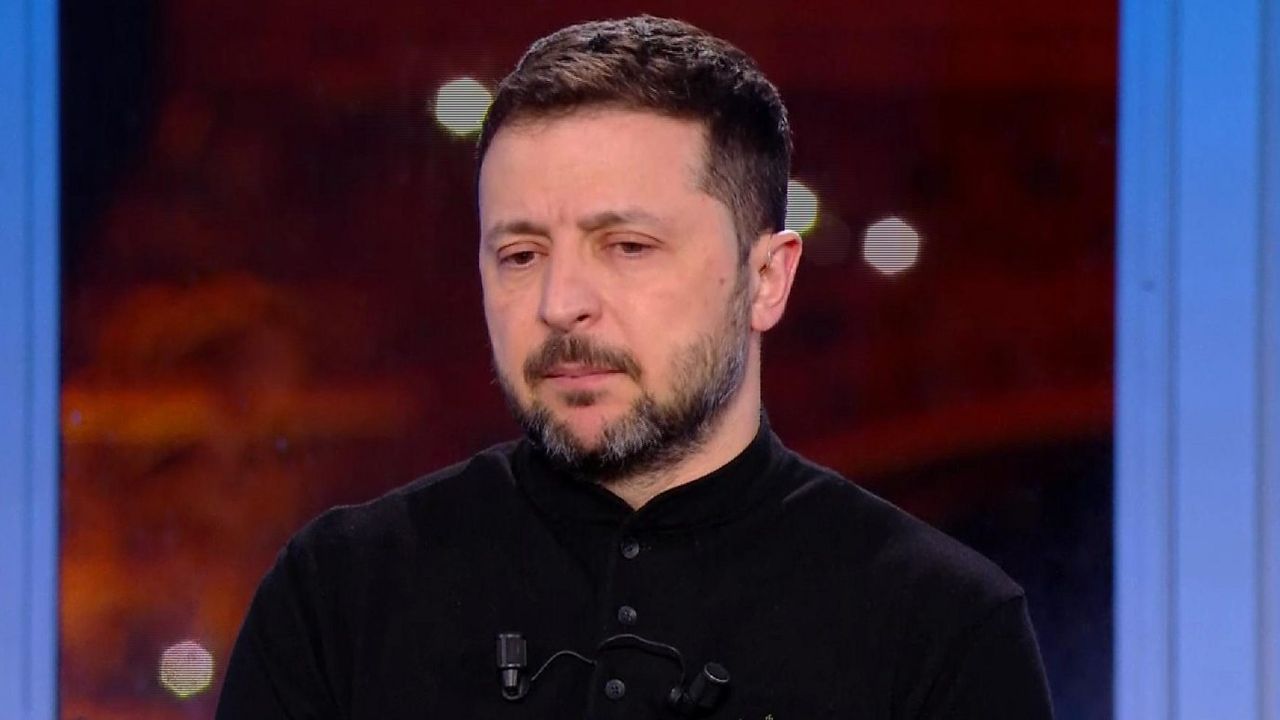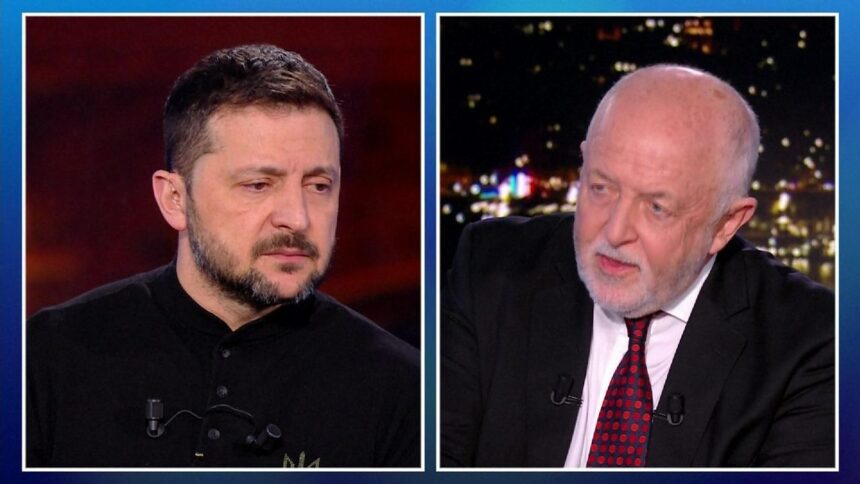Ukrainian President Volodymyr Zelensky has expressed hope that the United States will “stand strong” against Russian demands to lift sanctions in exchange for a ceasefire in the Black Sea.
Speaking at a panel interview in Paris, Zelensky said he believed Washington would resist Russian pressure but added, “God bless, they will. But we’ll see.”
Moscow announced on Tuesday that it would allow safe passage for commercial vessels in the Black Sea but insisted that the truce would only take effect once Western restrictions on Russia’s food and fertilizer trade were lifted. Shortly after, the Kremlin released a list of demands, including the removal of sanctions on financial institutions involved in agricultural trade and the restoration of their access to the Swift international payment system.
The Biden administration acknowledged Moscow’s request, with former President Donald Trump stating that the U.S. government was “looking at” the proposal. However, the European Union swiftly rejected any consideration of lifting sanctions before Russia unconditionally withdraws its troops from Ukraine’s internationally recognized territory.
Zelensky thanked the U.S. for its continued bipartisan support but warned that some American politicians were being influenced by Russian narratives. “We can’t agree to those narratives,” he emphasized. When asked whether he believed Trump had a closer relationship with him or Russian President Vladimir Putin, Zelensky remained diplomatic, saying, “I don’t know—it’s difficult for me to say.”
The Ukrainian leader also responded to recent remarks by Trump envoy Steve Witkoff, who dismissed Europe’s efforts to form a “coalition of the willing” in support of Ukraine. Witkoff, a real estate investor, lacks experience in international diplomacy, Zelensky pointed out. “As far as I know, he knows very well how to buy and sell real estate, but that’s somewhat different,” he remarked.
Zelensky noted that despite initial hesitations, Europe had “strengthened itself significantly” during the war. This shift has become even more urgent as concerns grow over America’s long-term commitment to Ukraine. “After everything Trump has said in the last two months, Europeans realize the Americans may not be there in the future, which has concentrated their minds,” observed BBC International Editor Jeremy Bowen.
France has already taken decisive steps, with President Emmanuel Macron announcing a €2 billion ($2.2 billion) military aid package for Ukraine following his meeting with Zelensky in Paris. Macron dismissed Moscow’s demands, stating that Russia “cannot dictate the conditions” for peace. He also reinforced that it was too soon to discuss easing European sanctions on Russia. 
Zelensky’s visit to Paris comes ahead of a high-stakes meeting of European leaders, co-hosted by Macron and British Prime Minister Sir Keir Starmer. The summit aims to establish a unified European strategy for Ukraine, particularly if a ceasefire is reached. Notably, the U.S. is absent from this coalition, signaling Europe’s growing role in managing the crisis independently.
Sir Keir Starmer is expected to emphasize Europe’s commitment to Ukraine, stating, “Europe is stepping up to play its part to defend Ukraine’s future.” His remarks reflect a broader European effort to reduce reliance on American military aid, as uncertainties surrounding U.S. foreign policy loom large.

Zelensky, however, remains focused on Ukraine’s survival. When asked how history would remember him—whether as the man who saved Ukraine or the one who let it fall—he responded simply: “I don’t know what history books will write about me. It’s not my purpose or goal.” His priority, he said, is ensuring that his children can “walk along their streets without hiding.”
As the conflict continues, Ukraine faces mounting challenges on multiple fronts. With Europe stepping up its support and the U.S.’s long-term role in question, Zelensky’s diplomatic efforts will be crucial in securing Ukraine’s future.








